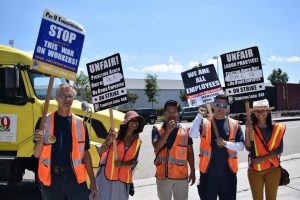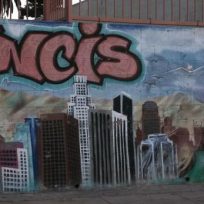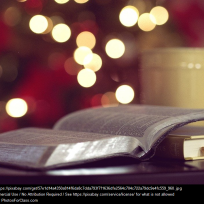
By Grecia Lopez-Reyes, Organizer with Clergy and Laity United for Economic Justice
For the past year and half I have worked as a Faith-Rooted Organize for Clergy and Laity United for Economic Justice (CLUE). I educate, organize, and mobilize the community of faith to walk in intimate solidarity with workers and their families fighting for a living wage, respect, and better working conditions in industries such as the Ports of Los Angeles and Long Beach. The ports are an industry that thrives from the sweat and labor of misclassified Port Truck Drivers. Due to misclassification, drivers are considered independent contractors and not employees, which requires for workers to be responsible for paying the lease of their trucks, maintenance, insurance, and fuel to name a few of the costs. Misclassification makes these drivers vulnerable to wage theft, while also denying them of benefits such as overtime pay, worker compensation, and health care. Read more here: “The BIG RIG Poverty, Pollution, and the Misclassification of Truck Drivers at America’s Ports a survey and research report.”
Workers at the ports have been fighting against misclassification for years. During the summer of 2015, a group of drivers was going through a series of hearings for wage and hour claims against a trucking company. The hearings were not going well and several felt defeated, frustrated and discouraged. Many drivers work 60-70 hours a week just to make enough, so I understood their pain and frustration. I decided to write them a letter sharing a bit of my story to uplift their spirits as we journeyed together in this struggle. I share with you the letter.

Dear Port Truck Drivers,
It has been a pleasure meeting you all and having the opportunity to talk to some of you. I hope that as my time continues with CLUE, I learn more about your stories as we walk together in the struggle for social and economic justice. I want to share a few thoughts that have been on my heart and that I think are important to remember as we continue on this long but hopeful journey.
I am the daughter of Guatemalan immigrants. As many of you, my parents migrated in pursuit of a better life for us—away from war, organized crime, poverty and violence. Most of you have come from somewhere else, and perhaps you arrived here out of desperation or simply the desire to pursue a dream and decent livelihood. However, this process for many ends up becoming an exploitative experience with the exposure to dangerous and unfair working conditions. The city suddenly becomes a place of survival; rather than being a place to call “home” It becomes a place where you merely work.
In your stories of struggle, I see my parents— risk takers with courage and boldness. I see hardworking individuals with an incredible sense of humility and a heart of perseverance that is sustained through hope and faith. I am also reminded of the continual injustice and lack of rest from the long hours of work and unfair and unpaid working conditions. My father’s burned marks on his fingers from the years of working as a presser at a dry cleaner are a constant reminder of his hard labor and struggle. He now suffers from Parkinson’s disease. My mother has also been in the dry-cleaning industry and has worked for a dry cleaner’s in West LA for 30 years. The first time I saw the veins on her legs from the years of hard labor was the day of my wedding. Her body deteriorates daily as she continues to tirelessly work 13 hour shifts, while standing on her feet all day long.
Injustice is reflected through their physical pain and tired bodies that never seem to stop. Injustice is also reflected in their sweat and unpaid labor. Our culture tells us that work is everything; that life is all about work. This lifestyle leaves us numb, no longer able feel the abuse and mistreatment. It allows us to forget about resting our bodies and about justice, however, the Holy Scriptures offer us an invitation to rest— to remember the Sabbath.
According to the biblical story, to be a part of the creation of God means that we are supposed to rest. In the Exodus story, we see that part of the identity of what it means to be a people of God is predicated upon resisting the enslavement of the empirical forces that marginalizes and dehumanizes workers. In this very story of liberation from Egypt we find the true meaning of Sabbath, ultimately reminding us of three things. The first is that God’s creation is a gift of abundance where there is enough for everyone. Secondly, this gift must continue to flow and cannot be hoarded unless greed allows for unjust working conditions where the elite make their profits on the backs of their workers. Lastly, Sabbath is about setting limits in our daily life. It reminds us that life is a gift and that our bodies are not to be overworked or burned to the limit. It helps us reflect on what it means to be human as we sojourn through this world. When we forget this import lesson, something dies within us and become less human. Remembering the Sabbath is an act of resistance, where we see the value of all creation allowing us to see ourselves as people with dignity and hope for a better future.
Paz y Justicia (peace and justice),
Grecia Lopez-Reyes
Note: For more on the Sabbath as resistance to empire see the work of Bartimaeus Cooperative Ministries on their website: http://www.bcm-net.org/wordpress/resources




